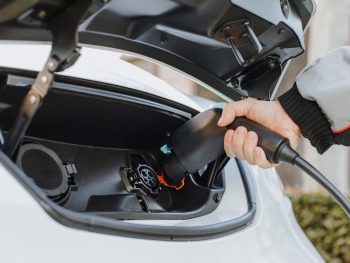Track public charging prices with AA’s new EV recharge report
Drivers and businesses can now track pay-as-you-go (PAYG) pricing across the public charging network with the help of a new monthly report from the AA.

The AA EV Recharge Report is intended to give drivers an initial insight into the charge point costs they can expect to keep their EV running without subscriptions
The analysis uses the average prices of more than 6,000 publicly available charging units across the UK – around a fifth of all devices (17%) – to help drivers understand the cost of charging and help them determine the speed of charge needed while out on the road.
While many charge point providers offer a subscription service that unlocks slightly cheaper rates, the AA EV Recharge Report is intended to give drivers an initial insight into the charge point costs they can expect to keep their EV running without subscriptions.
AA president Edmund King said the new dataset – the EV counterpart of the organisation’s existing Fuel Price Report – would help educate and inform drivers looking to switch to an EV and show how the cost of charging moves over time.
Unsurprisingly, the inaugural November 2022 report confirms that domestic charging is the cheapest possible option for EV owners, even with prices on the Government’s capped levels. Domestic charging is also half the price of ultra-rapid options.
But fast charging is on average cheaper than slow charging. Slow charging is usually found in on-street locations such as lampposts, whereas fast chargers can be found in car parks where people intend to stay for several hours. Fast chargers also represent the most common charge point in the public network, outnumbering rapid and ultra-rapid devices by more than three to one.
The AA notes though that slow charging providers often offer a subscription service which enables charging at lower rates than the average fast charging price.
It also finds that drivers who don’t have any form of personal dedicated off-street charging are still better off running a diesel than relying on rapid and ultra-rapid charging. Using a diesel Kia Ceed as the basis, its analysis calculates a per-mile cost of 13.25 p/mile. But a Kia EV6 using rapid chargers will pay 14.11 p/mile and 16.22 p/mile for ultra-rapids.
In contrast, petrol is more expensive on a pence-per-mile basis (14.62 p/mile) compared to all chargers with the exception of ultra-rapids; but a combination of domestic charging and ultra-rapid top-ups is cheaper than running a petrol or diesel car.
Jack Cousens, the AA’s recharging spokesman, commented: “Most people will opt for pay as you go rates when away from home, especially if they top their EV up at rapid and ultra-rapid chargers. While the cost of recharging will always be cheaper than refuelling, EVs can lose out to diesel cars when looking at the pence per mile cost.
“However, those with a home charger reap the rewards of the cheapest rates possible. Many can also enjoy discounted rates if their energy provider offers an off-peak tariff for overnight charging.”
AA EV Recharge Report – November 2022 (All PAYG prices not including connection fees where applicable)
| Charger type | Speed (kW) | Lowest price (p/kWh) | Highest price (p/kWh) | Average price (p/kWh) | Cost to charge 80% at Ave p/kWh | Pence per mile (p/mile) |
| Domestic | 3-7 kW | Using price cap | 34 p/kWh | £20.94 | 7.99 p/mile | |
| Slow | Up to 7kW | 35 p/kWh | 69 p/kWh | 54 p/kWh | £33.26 | 12.69 p/mile |
| Fast | 8-22 kW | 35 p/kWh | 75 p/kWh | 49 p/kWh | £30.18 | 11.52 p/mile |
| Rapid | 23-100 kW | 35 p/kWh | 75 p/kWh | 60 p/kWh | £36.96 | 14.11 p/mile |
| Ultra-rapid | +101 kW | 35 p/kWh | 75 p/kWh | 69 p/kWh | £42.50 | 16.22 p/mile |












